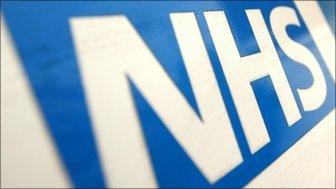How health commissioning works in rest of UK
- Published
The government's proposed changes to the NHS apply solely to England.
So what is the picture across the rest of the UK?
How does health commissioning work in Scotland, Wales and Northern Ireland?
And how much fiscal influence do doctors there have and are they likely to follow England's lead?
Scotland

The reforms apply only to the NHS in England
Unlike England, which currently has 151 primary care trusts responsible for buying and planning health services, Scotland's NHS is run by 14 health boards.
These health boards also support each other. For example if a flu vaccine runs low in Stirling, they might get a loan from Glasgow.
The system is partly due to geography. In some areas hospitals and GPs are too far apart to compete with each other for patients or funding.
In charge is Scotland's Health Minister, Nicola Sturgeon.
According to the BBC's health correspondent in Scotland, Eleanor Bradford, Ms Sturgeon "likes to keep a close eye on things, and the present minister has enjoyed relatively good relations with doctors".
No party in Scotland is suggesting reforms, but parliamentary elections are less than three months away. After that tighter budgets will start to bite, forcing some "tough love" measures, says Eleanor Bradford.
Wales
In Wales the NHS has recently been through a massive restructuring exercise. It scrapped hospital trusts and joined them to the 22 small, local health boards which were in charge of commissioning.
So since October 2009, the vast majority of the Welsh NHS has been run by seven health boards - a similar model to Scotland.
Health boards are now responsible for everything from planning, providing hospital care and community nursing to contracting GPs and arranging specialist treatment.
The Welsh government has pledged to eliminate the use of private sector hospitals and private finance initiatives.
Northern Ireland
The Health and Social Care Board in Northern Ireland commissions services for five local trusts. The health service in Northern Ireland has already experienced major changes.
In 2007 there was a massive administrative shake-up to make the structure smaller and more efficient.
As a result, the Health and Social Care Board was merged alongside the Public Health Agency. The agency advises and the board spends the current budget of around £4bn.
At this level GPs are not involved, but are instead represented on local commissioning groups in each of the five health trusts.
They have minimal spending power - theirs is more of an advisory role.
According to BBC Northern Ireland health correspondent Marie-Louise Connelly, there is little political will to give GPs more commissioning power.
"They're having a tough enough time even agreeing a budget in Northern Ireland and each of the departmental spending plans," our correspondent said.
- Published19 January 2011
- Published1 March 2013
- Published18 January 2011